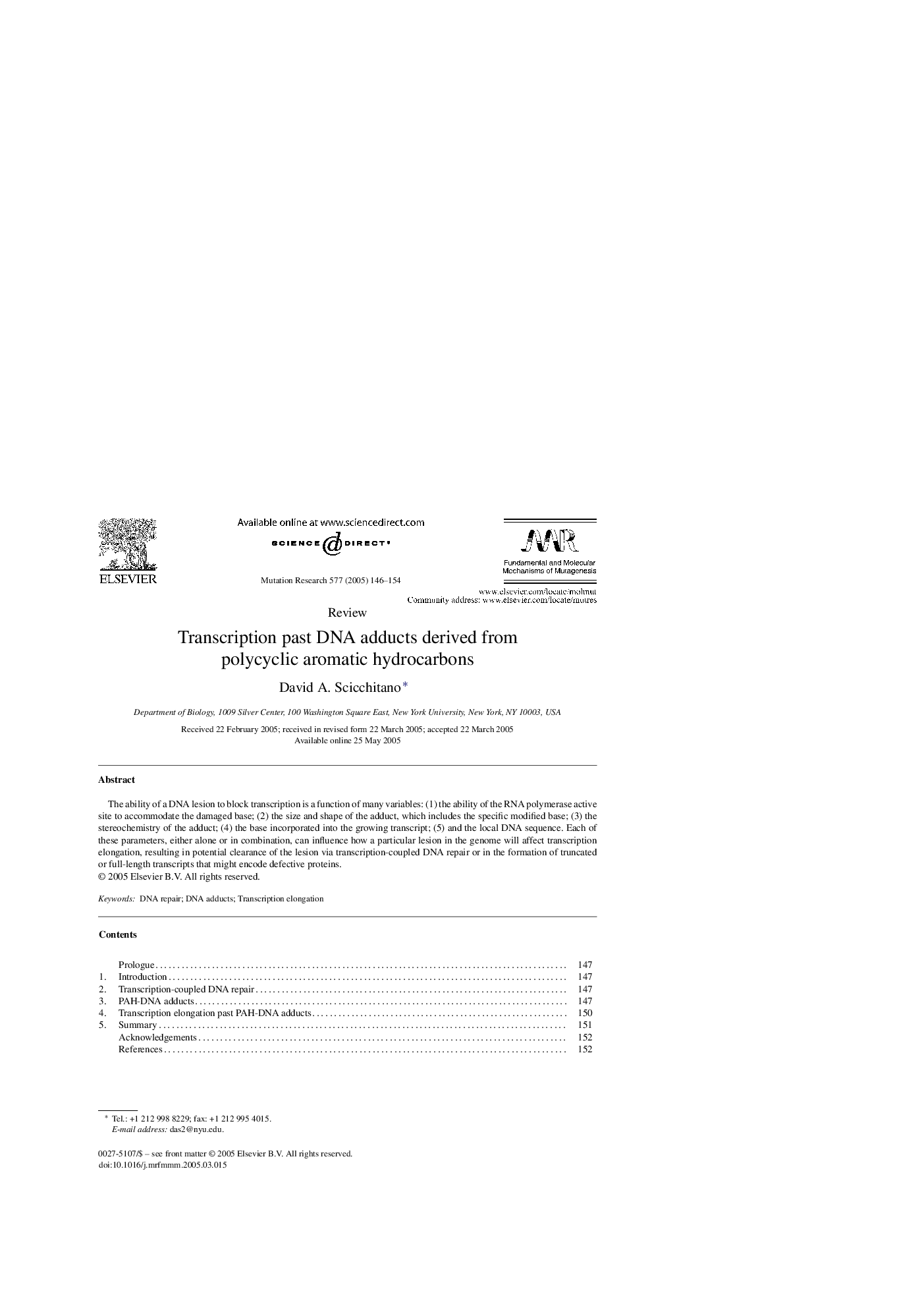| Article ID | Journal | Published Year | Pages | File Type |
|---|---|---|---|---|
| 9909057 | Mutation Research/Fundamental and Molecular Mechanisms of Mutagenesis | 2005 | 9 Pages |
Abstract
The ability of a DNA lesion to block transcription is a function of many variables: (1) the ability of the RNA polymerase active site to accommodate the damaged base; (2) the size and shape of the adduct, which includes the specific modified base; (3) the stereochemistry of the adduct; (4) the base incorporated into the growing transcript; (5) and the local DNA sequence. Each of these parameters, either alone or in combination, can influence how a particular lesion in the genome will affect transcription elongation, resulting in potential clearance of the lesion via transcription-coupled DNA repair or in the formation of truncated or full-length transcripts that might encode defective proteins.
Related Topics
Life Sciences
Biochemistry, Genetics and Molecular Biology
Cancer Research
Authors
David A. Scicchitano,
